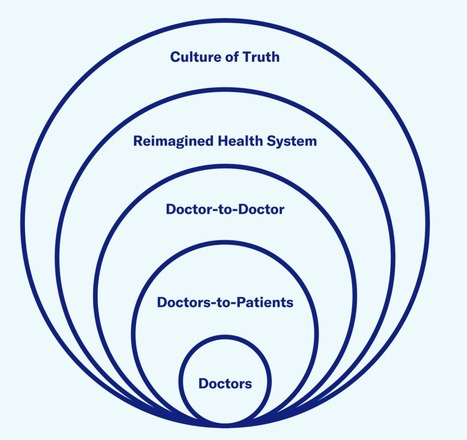
In a new report - The Truth About Doctors - Covid 19 Edition, McCann Health identifies four key ways how health care technology has changed since 2016. It highlights the the role of the health care industry in leveraging these changes to carve a new way forward
Access the report here --> https://www.mccannhealth.com/wp-content/uploads/2021/05/TADoctors_Leavebehind_Design_FINAL.pdf
In the past, technology has been gradually revolutionizing health care. While patients have adopted it whole heartedly, It has received push back from various quarters of care providers. Many think it may be having less-positive effects for physicians, some of whom eye it as a threat to doctoring.
However, come Covid-19, and the world simultaneously looked up to technology and the medical community in more or less an equal measure.
They wanted Tech to help us navigate the pandemic and the medical community to get us out of it, and the need for both to work together and amplify became clearer with each day since the pandemic started
As the world moves towards a period of renewal, it will be increasingly important that technology plays a complementary role in care, not just supporting doctoring but super-powering it.
Lets look at the 4 main focus areas mentioned in the report.
Technology is redefining the where of care
Home defines most individuals’ physical, mental, and social health. Until recently, home has also been a place where doctors are absent. That changed with Covid-19 and the rapid growth of telemedicine
If marketers and others within the health care industry can help doctors acclimatize to the new where of care — supporting them to embrace the home as an extension of their domain rather than something outside of it — health can be elevated in a more holistic level.
Technology can help cultivate inter-professional collaboration
During the pandemic, by using social media and messaging platforms like Twitter and WhatsApp, doctors with diverse backgrounds were able to pool knowledge and emotionally support each other in the collective effort to fight Covid-19. They collaborated in new ways with allied health care professionals, government, and industry, sparking a reimagining of the health ecosystem.
The challenge moving forward is giving this organic way of working across care teams and borders a structure to make it scalable.
How can the health care system evolve so an expert in peripheral neuropathy in Australia can collaborate with a startup in Belgium? On a more local level, how can health care systems ensure that the different health professionals involved in a patient’s care work together?
Secure, shared platforms can nurture a sense of belonging and create a new kind of community for doctors — a “care tribe” that has the power to connect perspectives and passions to advance the experience of care.
Technology can foster continuity and ‘contiguity’
There is a new willingness to take control over personal well-being in light of the pandemic. However this can only go so far in a health care system where time is limited and resources are fragmented.
With the proliferation of sensors there may be no better time to apply the quantifiable self to achieve more personalized care. However, new self-monitoring technologies must be integrated with the full health care ecosystem to make personal health care easier and more seamless, rather than adding to the confusion.
Even if technology provides access to more health information, it does not necessarily follow that patients or health care providers will understand it.
Health care providers must be taught the skills to not only help patients decipher their health information but to advance their care by proactively identifying and addressing their health risks.
With this comes a need to ensure that work is being done in a way that overcomes health inequities rather than heightens them.
Technology can care for the carers
Covid-19 has shown that, instead of posing an existential threat to doctors, technology may be a lifeline for them. By assessing patients before a consult, tech platforms can allow doctors to channel their energy to the problems that need it most. In complicated therapy areas such as oncology, it can ease their load through supporting diagnosis, treatment, and prognosis.
In the day-to-day practice of caregiving, technology can enrich relationships by enabling doctors to focus on the human art of medicine. Combined with the flexibility of video consultations and the panoramic perspective of integrated systems, technology can give doctors their time back to practice care on their own terms.
It’s easy to think that health care is behind the curve when it comes to embracing technology. Covid-19 has shown that this just isn’t the case. When it comes to the relationship between doctors and technology, the pandemic has been an epiphany. Instead of displacing doctors, technology has the power to help them provide better care, supercharging the humanity and empathy that lies at the heart of medicine.
Technology has a role in medicine, especially in the service of care.
This was curated via the report The Truth About Doctors - Covid 19 Edition, the article "Health depends on the strength of the doctor/technology relationship "at Stat News -
along with my own insights and thoughts



 Your new post is loading...
Your new post is loading...









Covid19's biggest learning has been that technology has a role to play in taking healthcare jump upwards to the next level. The collaboration between technologists and medical professionals holds much promise for the world. We have always said at Plus91, lets all work together today to make a better world, for tomorrow we may not get a chance. Collaborate! After all, the ultimate goal is the same for everyone - building a world of healthier and happier people, disease free and safe.